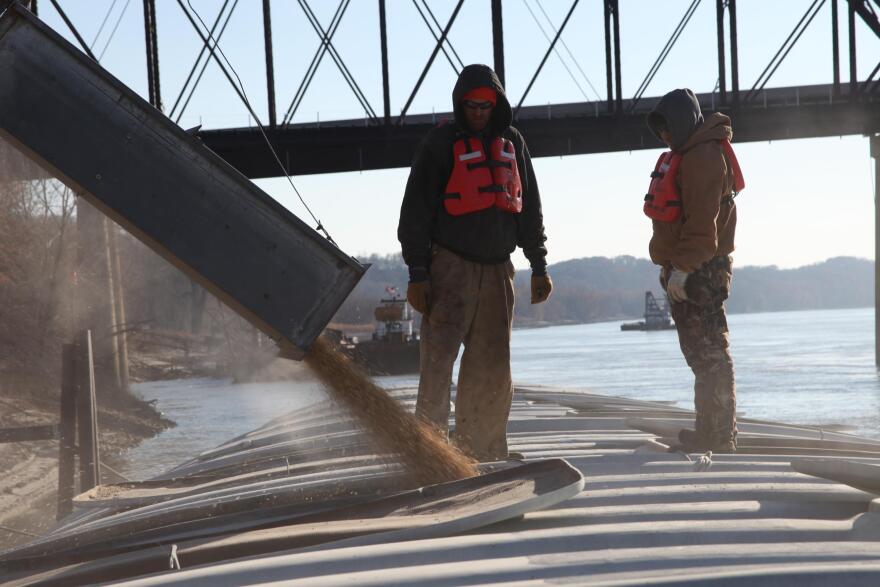The recent frigid weather across the Midwest has slowed river barges carrying grain to shipment ports, especially those destined for the Gulf of Mexico via the Mississippi, Ohio and Illinois rivers.
The U.S. Department of Agriculture reportsthat in the first two weeks of 2018, barges have carried about 60 percent less grain compared to last year, due to heavy ice buildups. That poses a problem for farmers trying to move their grain toNew Orleans for export.
“For soybeans, it's particularly acute because 80 percent of our exports occur between the months of September and February,” saysMike Steenhoek, executive director of the Soy Transportation Coalition. “So this is a real key time, an opportune time, for us to meet that international demand.”
He adds that farmers fear if U.S. grain is held up too long, international markets, like China, instead will buy grain from other countries, like Argentina and Brazil.
Bountiful harvests this year and last for corn and soybeans have led to a 30-year high of stockpiled grain and not much room for storage, so farmers are having to sell grain at lower prices or risk losing their product to rot.
“It really shows that when you've got one of those supply-chain challenges like we have right now, farmers are the ones who pay for it,” Steenhoek says.
There’s also a slowdown in the two other ways grain is shipped: Railway transportation dipped by 9 percent from last year and diesel prices for truck transportation are up to more than $3 a gallon.
Temperatures are rising across the Midwest, but transportation delays are still expected.
“There’s some resilience to these ice accumulations,” Steenhoek says. “So we're expecting this to remain the case—these impeded navigation conditions—for a number of days and maybe even a number of weeks.”




